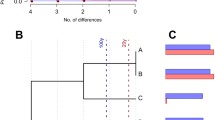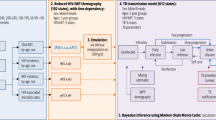Abstract
The high prevalence of tuberculosis in developing countries and the recent resurgence of tuberculosis in many developed countries suggests that current control strategies are suboptimal. The increase in drug-resistant cases exacerbates the control problems. Currently employed epidemic control strategies are not devised on the basis of a theoretical understanding of the transmission dynamics of Mycobacterium tuberculosis. We describe and discuss a theoretical framework based upon mathematical transmission models that can be used for understanding, predicting, and controlling tuberculosis epidemics. We illustrate how the theoretical framework can be used to predict the temporal dynamics of the emergence of drug resistance, to predict the epidemiological consequences of epidemic control strategies in developing and developed countries, and to design epidemic control strategies.
Similar content being viewed by others
Author information
Authors and Affiliations
Additional information
Received: 11 June 1997 / Accepted: 6 March 1998
Rights and permissions
About this article
Cite this article
Blower, S., Gerberding, J. Understanding, predicting and controlling the emergence of drug-resistant tuberculosis: a theoretical framework. J Mol Med 76, 624–636 (1998). https://doi.org/10.1007/s001090050260
Issue Date:
DOI: https://doi.org/10.1007/s001090050260




